How Pope Leo’s Election Shields Catholicism from American Evangelical Nationalism
How my personal pilgrimage to the Eternal City affirmed a political revelation.
A few months ago, I planned a trip to Rome for the 2025 Jubilee Year. My mother had never been to the Vatican. As she gets older, it becomes one of those "now or never" moments, the kind of family pilgrimage that carries equal parts spiritual aspiration and logistical anxiety.
As the trip approached, Pope Francis passed away, and the expected discussions about the Church's future began. Would the Church continue down the modernist path of Jorge Bergoglio, the man who became Pope Francis and pushed the Church to meet Catholics of the modern world where they are, or would we see a reversion to the Benedict model, with its emphasis on liturgical tradition and conservative theological orthodoxy?
For non-Catholics, it's difficult to grasp just how significant these philosophical differences are. The Catholic Church, after all, is one of the oldest institutions in Western civilization, where change moves at glacial speeds. In such a context, even a difference in tone becomes extraordinarily significant, like the difference between a symphony played in major or minor key.
After Francis's funeral, the conclave, and the selection of a new American Pope, it became even clearer that the analysis I had written was proving prophetic: the Catholic Church fully intends to establish itself as a bulwark against the troubling trend of Christianity devolving into mere political tribalism in the United States.
This intention was unmistakable in conversations throughout Rome, where an unusually large number of American pilgrims had come to the Eternal City, responding to their elation at the elevation of Pope Leo XIV, Chicago's new favorite son. The chatter among American Catholics in and around Vatican City was remarkably consistent:
"Pope Leo was chosen to stand against Trump."
"I've never felt more optimistic in the past ten years than I do now."
"The Church is so much bigger than Trump, but I'm not going to say it isn't nice to see the Cardinals send this kind of message."
To be clear, I've never seen the Church this politicized. To be clearer still, I've never seen it make so definitive a statement about where it stands. The right wing of American politics has consumed American evangelicalism like a theological kudzu, choking out anything resembling authentic Gospel witness.
Catholics have just made it abundantly clear they're not having it.
The election of Pope Leo represents one of the most strategically astute ecclesiastical decisions in modern Catholic history. Far from merely marking another papal succession, Leo's ascension to the Chair of St. Peter constitutes a deliberate and calculated immunization of the global Catholic Church against the toxic strain of Christian nationalism that has infected American evangelicalism, and threatened to metastasize into Catholic intellectual and spiritual life.
The timing of Pope Leo's election could hardly have been more providential. The specter of JD Vance, a recent Catholic convert whose interpretation of Catholic teaching appears filtered through the lens of American evangelical nationalism, had begun to loom large over the Church's future trajectory. Vance's public statements reveal a theological worldview fundamentally at odds with Catholicism’s compassionate social teachings.
This stark contradiction becomes strikingly pronounced when contrasted with Pope Francis's repeated calls for compassion toward migrants. Francis has consistently taught that "the fundamental right of peoples to life and dignity must be respected," and has characterized the treatment of refugees as a test of Christian authenticity. Vance's appropriation of Catholic concepts like ordo amoris (the proper ordering of love) to justify cruelty toward migrants represents precisely the theological contamination the Church needed to prevent, a kind of intellectual alchemy that transforms Gospel mercy into political expedience.
Pope Leo's background represents everything that Vance-style Catholic nationalism is not. Born Robert Prevost on Chicago's South Side, Leo embodies a genuinely Catholic, which is to say, universal vision of faith that transcends the narrow confines of American political identity. While Vance spent his formative years in elite institutions like Yale Law School before converting to Catholicism as an adult, Leo was shaped by a fundamentally different trajectory: a decade of missionary work among Peru's indigenous populations, followed by episcopal service in one of Latin America's poorest regions.
The contrast is instructive. Vance's Catholicism appears to be an intellectual exercise, adopted alongside his political ambitions and seemingly designed to provide theological cover for positions that would have been familiar to any 19th-century Know-Nothing. Leo's faith, by contrast, was forged in the lived experience of serving the global Church's most vulnerable populations, the very people Vance's rhetoric routinely dehumanizes.
Consider the geographical symbolism: while Vance crafted his political identity in the halls of power from New Haven to Silicon Valley to the U.S. Senate, Leo spent his crucial formative years in rural Peru, learning Quechua to better serve indigenous communities. When Vance speaks of "importing people who hate our country," he reveals a worldview that sees human migration primarily through the lens of threat assessment. When Leo speaks of his years in Peru, he describes encountering Christ in the faces of the poor, a rather different theological starting point.
The American evangelical movement's central flaw lies in its fundamental inability to distinguish between Christianity and American exceptionalism. For evangelical nationalists like Vance, the Gospel becomes subordinated to a political project that conflates divine will with American power and prosperity. Their theology is not truly Christian but rather a baptized form of nationalism that uses religious language to sanctify political ambitions, a kind of theological alchemy that would be impressive if it weren't so spiritually corrosive.
This represents a profound departure from traditional Catholic teaching. When Pope Francis writes that "each individual Christian and every community is called to be an instrument of God for the liberation and promotion of the poor," he articulates a vision of faith that judges political systems by their treatment of the vulnerable. When Vance suggests that America should stop accepting refugees because they might "hate our country," he reveals a theological framework that subordinates Gospel imperatives to national security concerns.
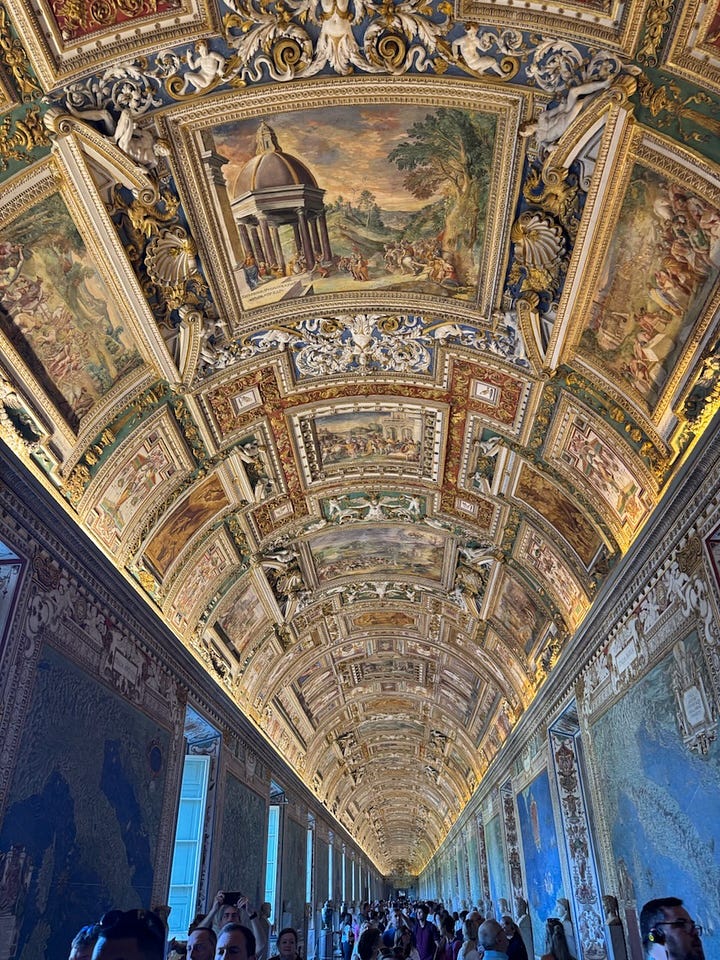
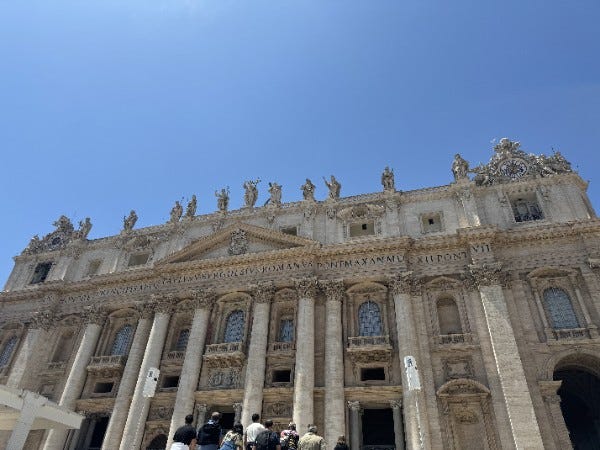
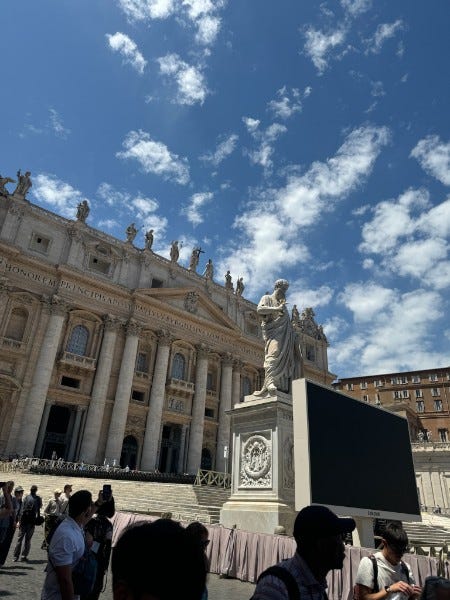
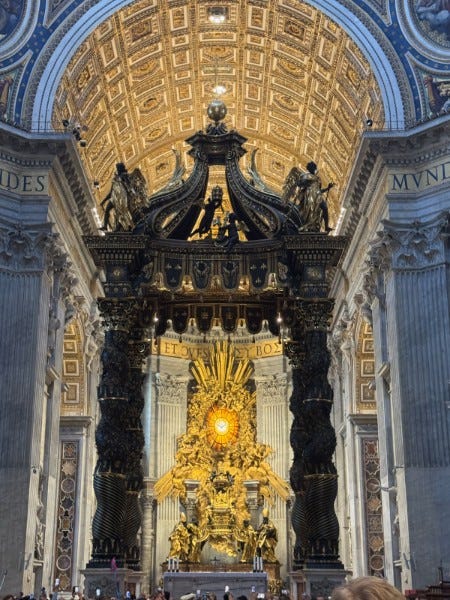
The transformation is remarkable in its brazenness: evangelical nationalism has successfully inverted the traditional Christian understanding of power and service. Where Jesus taught that "whoever wants to become great among you must be your servant," evangelical nationalism teaches that Christian greatness is measured by one's ability to dominate and exclude others. It's a theological innovation that would have puzzled Augustine, but makes perfect sense in contemporary American Christianity.
Leo's academic credentials are formidable in ways that make him uniquely equipped to combat this theological distortion. His Augustinian formation provides him with a sophisticated understanding of political theology that predates and transcends the American experiment entirely. Unlike the often shallow theological education typical of evangelical leaders, Leo's intellectual formation was shaped by centuries of Catholic scholastic tradition, patristic theology, and the lived experience of serving in Latin America, a region where the Church has long grappled with the temptations of political co-optation and emerged with hard-won wisdom about maintaining prophetic independence.
The strategic brilliance of Leo's election becomes even clearer when considered alongside the broader crisis of American Christianity. The founding Protestant traditions, the Puritan and Anglican streams, have devolved into forms of secular religion that cannot offer genuine spiritual nourishment. The Puritan tradition has morphed into the cultural purification projects of contemporary progressive movements, while the Anglican tradition has become little more than a theological veneer for oligarchic capitalism and white supremacy. American evangelicalism, meanwhile, has successfully secularized itself while maintaining the language of faith, a remarkable achievement in spiritual cognitive dissonance.
Into this vacuum, Catholicism under Francis had begun to offer something genuinely different: mercy, contrition, and a vision of human dignity that transcends political categories. Francis's famous question, "Who am I to judge?" regarding LGBTQ individuals represents precisely the kind of pastoral approach that evangelical nationalism finds intolerable, because it prioritizes individual dignity over systematic exclusion.
Leo's election forecloses the evangelical nationalist possibility entirely. His relative youth ensures that any influence from American evangelical nationalism will be held at bay for potentially decades. More importantly, his formation in Latin American Catholicism provides him with theological resources that are inherently resistant to the nationalist project.
Liberation theology, despite its occasional political excesses, fundamentally recognizes that the Gospel's primary concern is with the poor and marginalized, a perspective that stands in direct opposition to the prosperity gospel elements that have infected American evangelicalism. When Leo spent his early priesthood learning indigenous languages to better serve Peru's poorest communities, he was embodying the same Gospel imperative that led Francis to wash the feet of refugees on Holy Thursday. When Vance speaks of "importing people who hate our country," he reveals a worldview that sees the vulnerable primarily as threats to be managed rather than as bearers of Christ's image to be served.
The theological implications are profound. Leo's decade among Peru's indigenous communities taught him to see Catholic identity through the lens of service to the marginalized, precisely the opposite of Vance's vision of Catholicism as a cultural marker for an embattled American identity. Leo's acquisition of Peruvian citizenship represents more than administrative convenience; it embodies the Catholic principle of subsidiarity and demonstrates a man whose primary allegiance is to the universal Church rather than to any particular nation-state.
Furthermore, Leo's choice of papal name signals his acute awareness of the historical moment. By taking the name of Leo XIII, author of Rerum Novarum, he explicitly connects his papacy to Catholic social teaching's critique of unrestrained capitalism. This is not merely symbolic posturing; it represents a commitment to the kind of prophetic witness that American evangelical nationalism finds deeply threatening because it subordinates national and economic interests to Gospel values, an inconvenient habit that authentic Christianity has maintained for roughly two millennia.
The strategic significance of Leo's election is perhaps best confirmed by the reaction it has provoked from the very forces it was designed to thwart. Figures like Steve Bannon, who had cultivated relationships with traditionalist Catholic voices opposed to Pope Francis, recognized immediately that Leo's papacy represented a devastating setback to their nationalist political aims. The dismay expressed by American Catholic traditionalists who had hoped for a more politically accommodating successor to Francis serves as inadvertent testimony to the effectiveness of the Church's choice.
Their opposition reveals that Leo's election was correctly understood by nationalist actors as a deliberate closing of the door on their attempts to capture Catholic institutional authority for their political project. One can almost hear the collective sigh of disappointment from political operatives who had assumed that the Church's institutional memory was shorter than its history would suggest.
The strategic importance of Leo's dual American identity becomes even more pronounced when considered alongside the dramatic demographic and political shifts occurring within the American Catholic Church. The influx of Hispanic Catholics has fundamentally altered the composition of American Catholicism, while recent elections have revealed a troubling rightward drift among Hispanic voters, a trend that Republican strategists have been eager to exploit with the ruthless efficiency of political professionals who have discovered an untapped demographic goldmine.
This demographic reality created a particularly dangerous opening for evangelical nationalist influence. Conservative political operatives recognized that winning over Hispanic Catholics could provide them with both electoral victories and religious legitimacy for their nationalist project. The strategy was elegant in its cynicism: appeal to traditional values while quietly implementing policies that harm the very communities they claim to represent.
Pope Leo's election represents the perfect ecclesiastical counter-strategy to this political maneuvering. As a pope "from both Americas", born in Chicago but spiritually formed in Peru, Leo embodies the transnational Catholic identity that transcends the narrow boundaries of American partisan politics. His deep connection to Latin American Catholicism provides him with credibility among Hispanic Catholics that no American-born religious leader could match, while his Chicago origins demonstrate that authentic Catholic leadership need not choose between American and Latin American identities.
This positioning is crucial because it offers Hispanic Catholics a model of faithfulness that cannot be co-opted by either American political party. Rather than allowing their faith to be subordinated to Republican appeals to traditional values or Democratic appeals to immigrant solidarity, Leo's papacy presents Hispanic Catholics with a vision of Catholicism that judges both American political parties by Gospel standards rather than the reverse.
The election of Pope Leo thus represents more than a mere changing of the guard; it constitutes a decisive rejection of the evangelical nationalist project by the world's largest Christian denomination. At a moment when American Christianity threatens to become completely subordinated to political ideology, and when demographic shifts threaten to drag even immigrant Catholic communities into the orbit of Christian nationalism, the Catholic Church has chosen a leader whose very biography embodies the universal, transcultural nature of authentic Christian faith.
The contrast with figures like JD Vance could hardly be starker. Where Vance sees Catholicism as a useful cultural identifier that can be deployed in the service of American nationalist politics, Leo embodies a Catholicism that transcends national boundaries and judges all earthly powers by Gospel standards. Where Vance's rhetoric dehumanizes migrants and refugees, Leo's formation among Peru's indigenous poor taught him to see Christ in the faces of the marginalized.
In doing so, the Church has erected a sacred bulwark against the forces that would reduce the Gospel to a mere instrument of national ambition, ensuring that at least one major Christian institution will continue to speak with prophetic clarity to the powers and principalities of this age. It is, perhaps, the most elegantly executed ecclesiastical checkmate in recent memory, a reminder that while political operatives may be clever, two thousand years of institutional experience in navigating the treacherous waters between temporal power and eternal truth tends to produce a rather sophisticated understanding of the game.
The irony is obvious: in their eagerness to capture Catholic institutional authority for their nationalist project, evangelical nationalists have inadvertently prompted the Catholic Church to elect a pope whose very existence represents an immune response to their theological contagion.
It's almost as if the Holy Spirit has a sense of humor about these things.

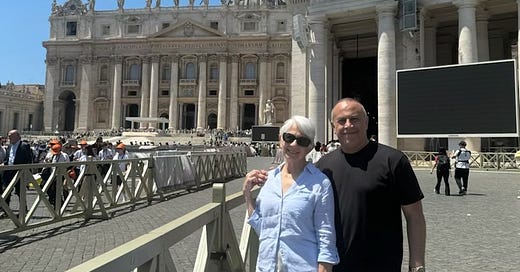



Arguably, your best piece to date. This was an experiential trifecta: a skillful weaving of the insight provided by your latino, political and religious backgrounds. Left the church in CA in the 90s and have been sad to watch it, and many of the Catholics I know, slide into far-right politics. The elevation of Pope Leo was , indeed, a brilliant, as you say, check-mate. You covered this transition decision quite masterfully. Kudos.
Beautifully written!
The Gospel survives the angry threat of American fascism!
“It is easier for a camel to walk through the eye of a needle, than for a rich man to enter the kingdom of heaven!”